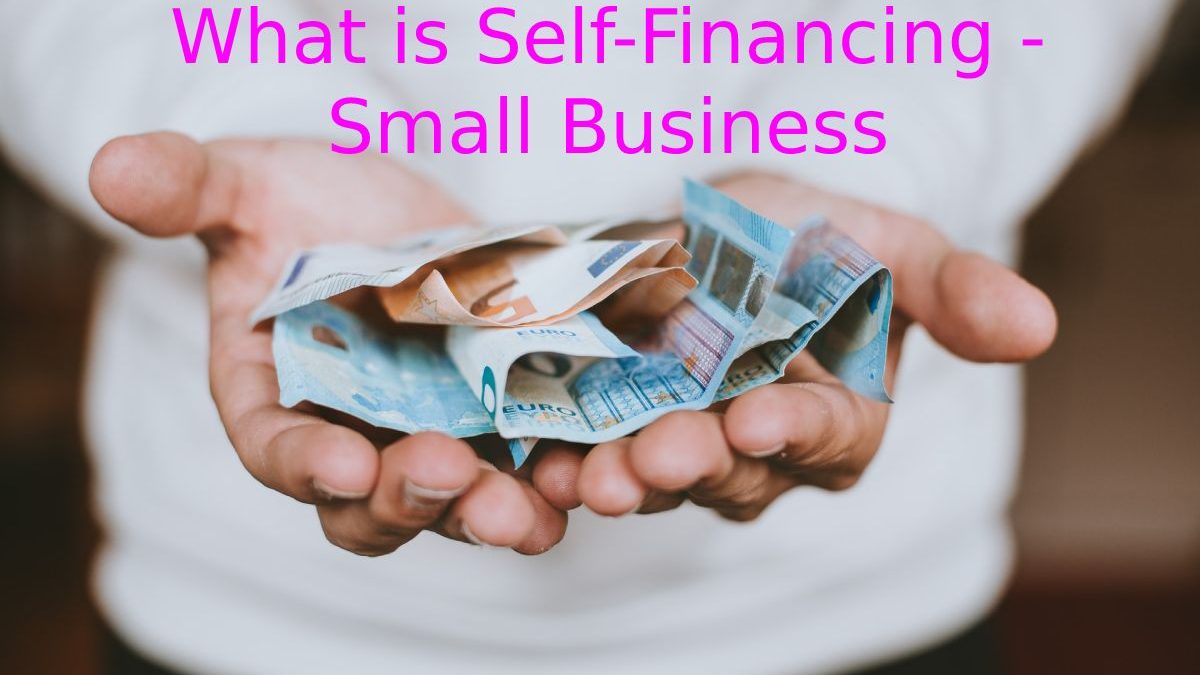Table of Contents
Introduction
Self-Financing provides several benefits over other types of financing, including the fact that it does not produce interest and allows you to keep control of your firm and its shares.
Self-financing means that you aren’t reliant on other funding to expand your firm. The money is reinvested rather than used to pay off debts and loans. Businesses that self-finance keep expenses down and develop at a steady pace. Many multi-billion-dollar companies, such as Apple, began in a garage or basement.
Self-Financing Strategies Include
Some of the self-financing strategies include personal savings, loans or credit cards.
Financing with your resources offers some less obvious advantages: they require little paperwork (fill out an application and present a guarantee), there is no specific objective for the money (you can use the cash for whatever you want or need), and you can pay your credit in biases.
If you choose this Self-Financing scheme, remember that the internet offers free resources for startups, and social networks are a very affordable marketing alternative. Online sales cost a fraction of the general expenses of physical stores. To generate income in the early stages of your business, review your business model and use a scheme that allows you to create recurring revenue, for example, subscriptions, rather than one-time sales.
Small Business Loans and Venture Capital
Small business loans provide a source of financing that favours more traditional business models: they promise large sums of money, but often with many implications. If you consider this option, you must be prepared to present a clear and thorough business plan and account for every penny you spend.
At the other extreme, we have venture capital. Venture capital investors pour big money into ideas that promise rapid and massive growth. Very few businesses meet these requirements. Those who succeed must negotiate part of the company control (give up a percentage of the shares) and a portion of the profits in exchange for this type of financing.
A check for several million sounds exciting until you realize you’re going to be working for your investor. Ask yourself: is what they offer me worth 25% – 75% of my business? It is essential to find someone who shares your vision and offers you support, experience, distribution, advice or any extra benefit, in addition to money.
Recourse to external financing is also valid. It means someone believes enough in what you do to invest in you. In addition, the entry of money when you first start makes a huge difference when it comes to consolidating your company.
Silent partner – Self-Financing
Another option is to work with a peaceful partner. Like venture capitalists, they are someone who puts large sums of money into a project and expects significant returns. But unlike them, silent partners do not want to be involved in your business decisions. Since they have no say in your business, they consider themselves investors.
Backgrounds Collection
Crowdfunding websites like and are a new method of financing that has a lot of benefits for entrepreneurs. Crowdfunding raises funds without appropriating or removing control. These platforms allow you to converse directly with your fans and potential customers. This encourages future growth while also increasing capital. Crowdfunding sites also function as marketing platforms. Your content, branding and mission will attract users to your campaign and hopefully motivate them to support your project.
Since the investors in this model have no shareholding or board positions in your company, you have to give them something in return. Campaigns on these platforms often offer prizes or rewards in exchange for your contribution, for example, early access to your product, tickets to an event, a workshop, resources, etc. Here’s another learning opportunity: Designing a crowdfunding campaign force you to consider the value of the products or services you offer to your customers.
Friends and Family
Your parents probably don’t have as much money as a venture capital firm or a bank, but they may believe in you and offer you more flexible terms. Friends and relatives can be an enormous source of startup capital, especially if you are young and inexperienced. Your acquaintances are more likely to invest in your potential and work ethic (because they know you) than an investor who wants to see proof you don’t already have.
Special Programs
There are entire industries dedicated to helping those who want to start a business: from shared workspaces to CRM software and government grants.
The recent exponential growth of startups has led local, state, and national governments, universities, and business incubators to attract and encourage business development. Startup incubators and accelerators are highly competitive programs that offer seed capital to new businesses. Those who participate in them receive, in addition to funding. Mentoring and educational resources that would otherwise be out of their reach. At HubSpot, we have some special programs:
Write the Marketing Plan
When you have the license to operate and your company’s name. You must begin to create an online presence and tell your story. First, think about the target consumer. Ask questions like:
Who Would Promote my Product or Service
Think about who these people are and what message they would most identify with. Think about their interests, goals and problems, their age range. What they do and what social networks they use, among other things.
Use the responses to create buyer personas with the help of our free templates. These are detailed profiles designed to help you better understand the needs of your target customer. When making decisions, you should always take your buyer personas into account.
Also Read: Specific Objectives of a Company – Definition – Examples


